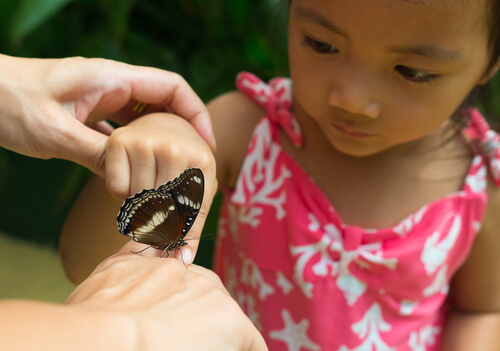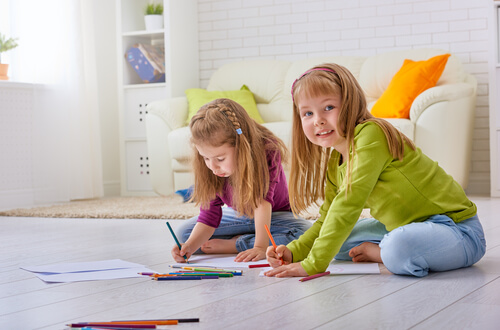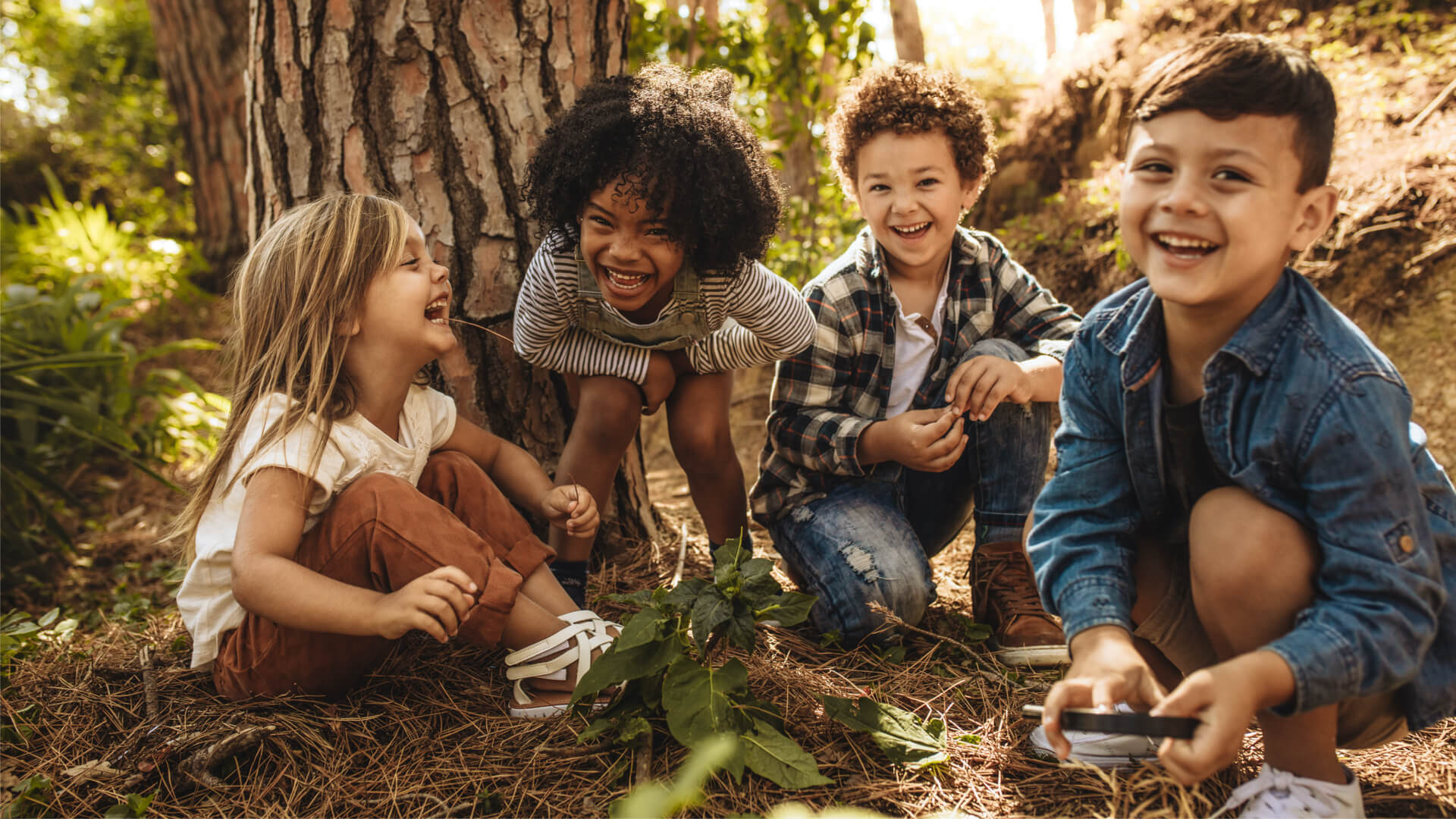Educational Activities for Kids at Home
In This Article
- Expand your child’s vocabulary with more than 1,500 educational activities!
- Explore the Natural World
- Try Easy Science Experiments
- Start a Family Book Club
- Listen to Audiobooks or Podcasts
- Color a Giant Poster
Learning at home has become even more important now that kids are forced into remote learning. Feeding the minds of curious kids promises to be a challenging part of our lives for a while longer. So, it has become especially important for parents to be realistic about the demands that it places on the family. To navigate this extended time at home, here are some ideas for educational activities for kids without asking too much of them – or us!
Expand your child’s vocabulary with more than 1,500 educational activities!
The more you practice, the more you learn! Try the Speech Blubs app for fun and engaging language learning with your little one.
Explore the Natural World
Nature is a wonderful teacher, as kids instinctively like outdoor exploration. It is a fun and easy way to expand their learning through play.
Young children in particular love anything to do with plants, insects, and animals. They can find them in their own backyards, neighborhoods, local parks, or nature centers. This makes it easy to organize observation of these and even looking up and sharing an interesting fact or two. Bugs, especially, can make their curiosity blossom.
You will need to keep your bugs for extended observation. So, you can easily create a DIY insect habitat using a container covered with cheesecloth or any other breathable material. This works really well with caterpillars! Kids (and parents!) will love watching their growth and transformation process, changing to pupa and eventually butterfly.
Outdoor scavenger hunts are another great way to explore nature. Kids can learn about indigenous plants and animals by hunting for them and taking pictures of their findings.

Try Easy Science Experiments
Toddlers and preschoolers enjoy seeing science in action with a few easy science experiments for kids that use materials you likely already have at home. Just fill a large container with water to explore density and buoyancy and play “sink or float.” All your little one has to do is select any safely immersible toys or household items, and toss them into the container to see if they sink or float.
They will love picking out their special toys and watching what happens when they put them in the bin, and of course, splashing in the water! Other simple experiments include using milk, dish soap, and food coloring to explore surface tension; creating a string telephone to experience how sound waves travel; or making rock candy to see the crystallization process.
https://www.youtube.com/watch?v=087hssnar-0
Start a Family Book Club
A great way to encourage lifelong readers is to make reading a family affair. Read together, ask a lot of questions, and make it a point to talk about what you have read to help develop reading comprehension. A family book club is a great way to read as a family and can be adapted depending on children’s ages and reading levels.
Independent readers might want to take turns picking a book. Then, have everyone read it on their own and come together to discuss in a fun family activity. Families with young children can choose a book to read aloud together. They can make it a special nightly or weekly family ritual.
It’s a great way to always have something to talk about over dinner, too!

Listen to Audiobooks or Podcasts
With so many demands on parents’ time, it is incredibly helpful to have a few educational activities that don't require much direct adult involvement. Kids need activities they can largely do on their own. Enter, podcasts!
We are fortunate these days to have a wide selection of podcasts for kids that are both educational and entertaining. That way kids are more likely to sit quietly for long periods of time, and with no screens required. If children enjoy listening to stories, learning about science, or asking random questions about the world around them, they can find a podcast to keep them entertained and learning – and without too much active involvement by a parent!

Color a Giant Poster
Coloring is fun at any age, and coloring a gigantic map also makes this relaxing activity and subtle geography lesson for kids. Roll out a gigantic coloring poster and have your kids work on it a little at a time, or as part of a designated quiet time each day.
Similarly, do not underestimate the power of a good activity book to keep kids engaged and learning quietly. Use connect the dots exercises, sticker books, mazes, color-by-number, and traditional problems and brain teasers to keep kids’ minds and hands active. This variety of excellent activity books for kids is available for different ages and for various subject matters.
So, here are some educational activities for kids that will take some of the pressure off parents.
